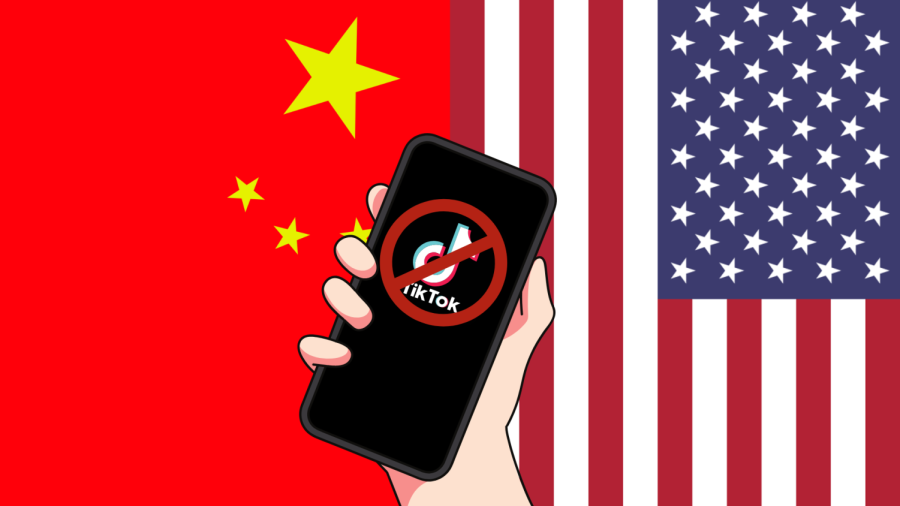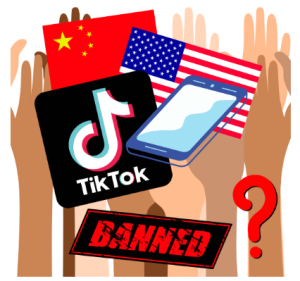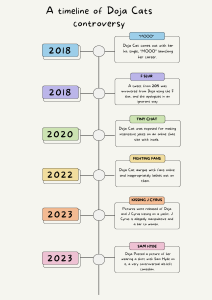‘TikTok Ban Bill’ would do more than ban TikTok
TikTok ban graphic
April 25, 2023
The “RESTRICT Act” (S.686) is a bill that was introduced to the United States Senate on March 7, 2023 and has yet to proceed further into the legislation process. While some have called this bill the “TikTok Ban Bill,” it includes more than simply the ban of TikTok.
This bill grants the Director of National Intelligence and the Secretary of Commerce the power to universally designate new “Foreign Adversaries” without Congress having any prior knowledge. It also allows a 15 day window to inform the president of this action and also requires a joint resolution of Congress to overturn the designation. Foreign Adversaries are defined as follows in SEC.2.DEFINITIONS of the bill: “The term ‘foreign adversary’- means any foreign government or regime, determined by the Secretary.”
While some may view this new action as a positive thing, others see potential problems.
The American Civil Liberties Union (ACLU) says,“The bill… would significantly expand the Executive Branch’s power to control what apps and technologies Americans can access, while limiting Americans’ ability to challenge those actions in court. It would also impose civil and criminal penalties for violating bans imposed pursuant to legislation, which could be used against people attempting to evade a TikTok ban.” The penalties for civil violations include fines up to $250,000 per violation and fines up to $1,000,000 and imprisonment for up to 20 years for criminal ones.
Because of these penalties, many argue that this bill would undermine the freedom of expression in the United States. S.686 could directly restrict a users’ ability to speak and receive information. Many U.S. citizens, specifically teens, use TikTok as a place to share and find information across a broad variety of topics. The Supreme Court has recognized that the First Amendment not only protects the right of free speech, but also the right to obtain information, including information from abroad.
Although there are other online services that may remain available, banning TikTok would prevent people from spreading and receiving information from an important and distinct internet tool. “Just as the Supreme Court has recognized that bans on yard signs, pamphlets, or live entertainment are not permitted under the First Amendment simply because other means of expression remain available, a ban in TikTok suppresses a unique medium of expression and suppresses too much speech,” says the Center For Democracy & Technology (CDT).
TikTok being banned in the US would also be something called a “prior restraint” on speech, which is a limit imposed on speech before it happens. The CDT says, “The Supreme Court has long recognized that the chief purpose of the First Amendment is to prohibit prior restraints and that prior restraints can be justified only by the most extraordinary circumstances.”
In the past, the Supreme Court has denied justifications based on national security interests.
The main reason this bill is even being implemented is because of the government’s concerns over the Chinese government using TikTok to gather U.S. information. However, if this was the case, and the Chinese government, or any foreign government was using social media in this way, the First Amendment would forbid the government from banning the service because the viewpoints expressed on it don’t align with that of the government.
If this bill were to become law, the next step would be to pass Senate.










